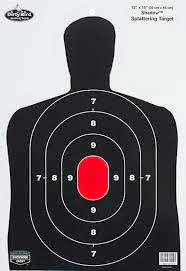Imagine, if you will (and if you
won’t, go away).
Someone you know and care about is murdered. Viciously. The evidence points to you.Welcome to the world of internal affairs where police investigate themselves and conclude that they behaved properly.
Police come, show your mother the incriminating evidence, and ask her if you did it.
No, she says. I’ve reviewed the evidence and find that he’s innocent.
Police leave, satisfied because his mom cleared him.
It’s not just police, of course. Government agencies do it all the time with their employees. Decades ago, back when he was a federal prosecutor, Scott Turow was accused of ethical impropriety. He wrote of the experience in the NY Times Magazine.
Indeed, the most dismal -and
disappointing - moment I have endured as a lawyer arose last year in a sharp
dispute over ethical duties. In June 1987, a Federal appellate court in Georgia
rebuked me severely for my role as a United States prosecutor in allowing a
defense lawyer who was seeking to cooperate with the Government to secretly
tape-record a conversation with one of his clients about a drug-selling scheme
that the lawyer admitted he and the client were planning. When I protested, the
court responded by suggesting that my conduct regarding the defense lawyer
might have constituted obstruction of justice. Various public officials and
scholars spoke out in my defense, and, after a full investigation, the Public
Integrity Section of the United States Department of Justice publicly
vindicated me and my superiors in the Justice Department who had directed my
actions, stating that the conduct in question fully complied with Federal law.
I believed - and continue to believe - that neither clients nor lawyers have
the right to plan crimes secure from government law-enforcement efforts.
Ah, yes.
Vindication. The Justice
Department concluded that a Justice Department employee, in pursuit of the
Justice Department’s goals, obeyed an order from his superiors in the Justice
Department and did not violate the law when he did so. Glad he got that cleared up.
Which brings me to the snipers of the North Miami Beach
Police Department (NMBPD) and what they were doing out at the Medley Firearms Training Center. What they were doing, reasonably enough, was
target practice. No complaint
there. If the police are going to have
snipers (whether that’s a good idea is another matter), I want them to be good
shots. “Hit who you aim at rather than
the guy next to him” seems a good rule for sniping.
The thing is, the
snipers of the NMBPD weren’t using generic targets.
Or
or even
They were using pictures of real people. Facial shots. So, you know, they’d recognize ‘em if they saw ‘em on the street, say. Or during a raid.
They were using pictures of real people. Facial shots. So, you know, they’d recognize ‘em if they saw ‘em on the street, say. Or during a raid.
Oh, and did I
mention, at least one of the pictures was a mug shot. From 15 years earlier. Of a guy who’d served his time and gone
straight. His name’s Woody Deant. From Miami NBC.
“Now I’m being used as a target?” said Woody Deant. “I’m not even living that life according to how they portrayed me as. I’m a father. I’m a husband. I’m a career man. I work 9-to-5.”You may not be surprised to hear that Woody is African-American. All the targets were. Just an unfortunate coincidence, really. Training the snipers to kill black guys.
I mean, really, this is the US. We have an African-American President f'rgodssake in this post-racial society. You know, the one where the Majority Whip in the House was the speaker at an event held by a white supremacist group of neo-Nazis.
But it's all good.
[North Miami Beach Police Chief J. Scott Dennis] noted that the sniper team includes minority officers. Dennis defended the department’s use of actual photographs and says the technique is widely used and the pictures are vital for facial recognition drills. But the Deant family questions why officers were firing targets with images of real people, in this case African-Americans, especially at a time when relations between minority communities and law enforcement are so tense.All according to Hoyle.
“Our policies were not violated,” Dennis said. “There is no discipline forthcoming from the individuals who were involved with this.”
Because as long as they didn't actually violate any policies it was OK for them to practice their sniping skills on black folk.














This is just another example of turpitude in the police department. If using photographs instead of regulation bull's eye targets is perfectly acceptable, let the shooters use photos of North Miami Beach Police Chief J. Scott Dennis and his family. That should be okay, right?
ReplyDelete